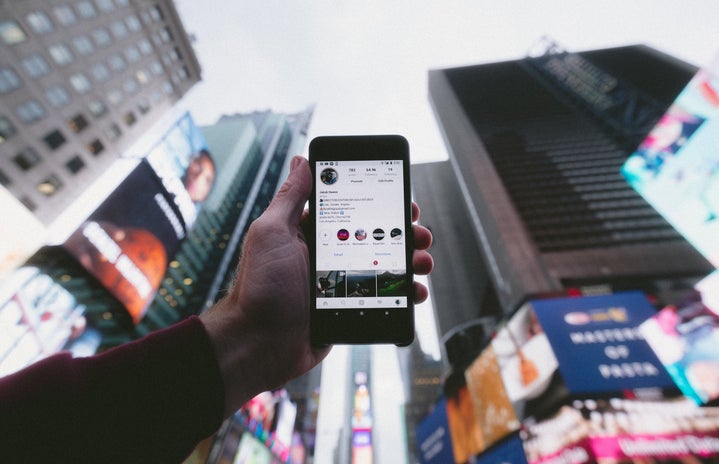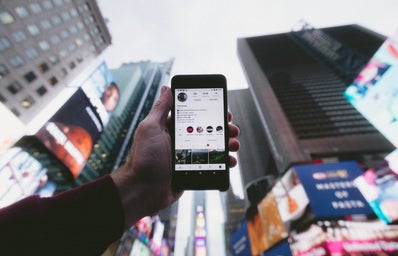DCU student, Sophie Lieghio, recently created her own hashtag campaign #nofilterchallenge21 to encourage people not to use filters and blurring effects.
Sophie first thought of the idea for this when she saw many micro influencers and celebrities sharing videos of a filter that showed one half of your face as it is and the other as a completely blurred, altered and edited version. She was affected by this on a personal level.
“I always used a filter when taking selfies on Instagram stories and realised how toxic it was, as I was showing myself a false idea of who I was. I’ve also struggled with eating disorders and body dysmorphia, a lot of which has been focused on my face, and it was feeding into unhealthy habits,” she revealed.
Sophie believes her hashtag campaign is important because we see so much now about having “air brushed flawless skin” when skin has texture. She also highlighted the racial bias of these filters alongside other problems.
“Even people whose skin seems completely clear have pores and bumps and dry patches – the filters are also very Eurocentric, shrinking noses and taking away features that aren’t predominantly white, which is a huge issue around race and white beauty standards.”
The campaign is simple in that those who get involved must commit to not using filters that entirely alter their skin or body and facial features. Social media users can participate by posting a filter-less selfie on their Instagram story or feed with the hashtag #nofilterchallenge21.
Sophie’s message through her hashtag campaign is to remind people that they’re beautiful and that the airbrushed pictures we see online are not real.
“I’d like to encourage people to take a step towards accepting and embracing their natural features. Whether it’s uneven skin, a double chin, a wonky nose, etc. They’re all part of the uniqueness that makes you you and it’s a shame that social media and society has made us feel like if we don’t shrink ourselves or have absolutely no marks on our skin that we’re ugly or worthless,” she says.
Sophie is sympathetic regarding the use of filters by celebrities and influencers.
“They’re a part of the same system we all are, and as people who are constantly scrutinised for their appearance, I can understand why they do use photoshop and filters. I don’t think there’s a singular person to blame here, rather it’s a major issue with using bodies/body features as trends and definitely patriarchal ideas about what women should look like,” she adds.
The Social Sciences & Cultural Innovation student recommends following body positive influencers and celebrities such as Lizzo, @bodyposipanda, Tess Holiday, Jessica Blair and Stephanie Yeboah.
“I think confidence in your appearance and body is a constant journey, some days are far tougher than others but I hope it’s a step in the right direction, particularly for young girls in a world where our bodies are allowed to be used as fashion trends,” Sophie says.



